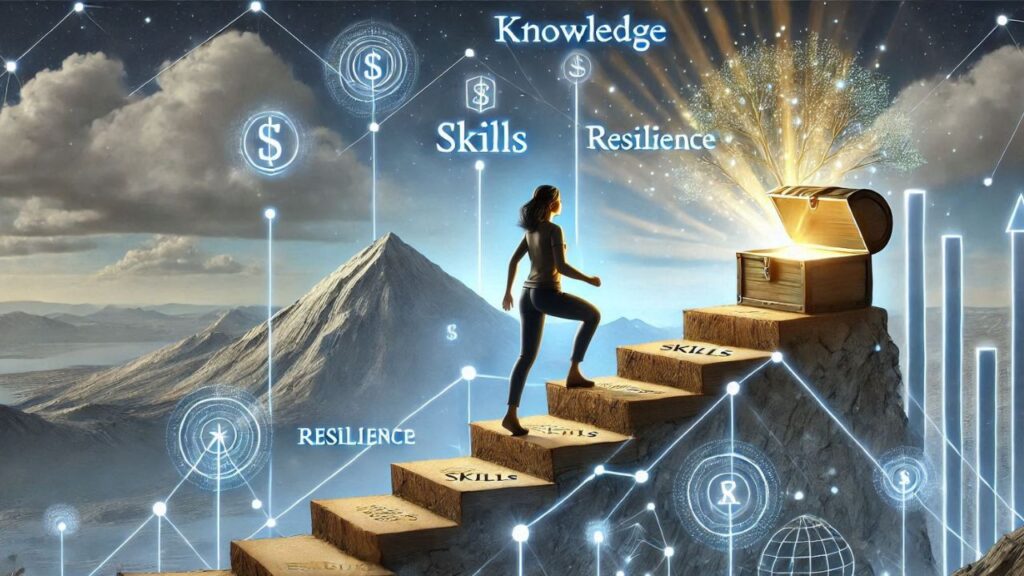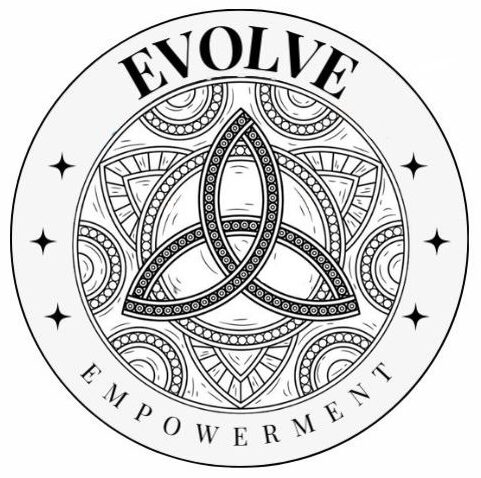The Power of Investing in Yourself is the cornerstone of both personal and financial success.
It encompasses the conscious pursuit of growth in areas such as knowledge, skills, mindset, and emotional intelligence.
When aligned with financial goals, personal development becomes a powerful tool to unlock wealth and prosperity.
The phrase “Invest in Yourself First” embodies the philosophy that building wealth starts with building oneself.
This article will explore the connection between self-investment and financial success by answering three key questions:
- What is the foundation of financial prosperity?
- How does personal development contribute to wealth-building?
- What actionable steps can individuals take to align personal growth with financial success?
By the end of this exploration, you will understand how personal development lays the groundwork for financial well-being and discover a roadmap to start your journey toward self-investment and prosperity.
Section 1. Laying the Foundation for Financial Prosperity.
What Is Financial Prosperity?
Financial prosperity is more than just accumulating wealth; it’s achieving a state of financial stability, independence, and abundance that enables you to live the life you desire.
It includes freedom from financial stress, the ability to make choices without monetary constraints, and the capacity to give back to others.
Why Mindset Is the First Step.
A prosperous life begins with the right mindset. The way you perceive money, opportunities, and challenges shapes your financial outcomes.
A growth-oriented mindset fosters resilience and adaptability, essential traits in navigating economic uncertainties.
For example, someone with a fixed mindset might see failure as an endpoint, while a growth-oriented individual sees it as a stepping stone to improvement.
Practical Examples of Personal Investment Leading to Financial Gain.
- Upskilling for Career Growth. Investing in a professional course can lead to promotions or higher-paying roles.
- Networking. Attending conferences or workshops can open doors to partnerships and opportunities.
- Health Investments. A healthy lifestyle reduces medical costs and boosts productivity, indirectly contributing to financial well-being.

Section 2. The First Step to Personal Development
The Importance of Self-Awareness.
Self-awareness is the foundation of personal growth. Understanding your strengths, weaknesses, values, and aspirations helps you set meaningful goals and identify areas for improvement.
Without self-awareness, efforts to grow may lack direction.
Strategies to Cultivate a Growth Mindset.
- Embrace Challenges. View them as opportunities to learn rather than obstacles.
- Seek Feedback. Constructive criticism can help identify blind spots.
- Practice Gratitude. A positive outlook builds resilience and openness to opportunities.
Investing in Knowledge and Skill Development.
Education is one of the most powerful self-investments. This can include formal education, online courses, reading books, or learning from mentors.
Key areas of focus include financial literacy, leadership, and emotional intelligence.
Benefits of Continuous Personal Growth.
- Resilience. Adapt to setbacks without losing momentum.
- Adaptability. Thrive in changing environments, such as technological advancements or economic shifts.
- Confidence. Trust your abilities to seize opportunities.
Section 3: Building Wealth Through Personal Growth.
The Role of Personal Development in Financial Success.
Financial success is not solely determined by external factors like market conditions or inheritance; it is deeply tied to internal growth.
Personal development equips individuals with the tools to identify and seize opportunities, manage resources wisely, and build sustainable wealth.
Translating Personal Growth into Financial Success
- Enhanced Productivity. Time management and focus lead to greater output, increasing earning potential.
- Informed Decision-Making. Financial literacy reduces impulsive spending and encourages strategic investments.
- Stronger Relationships. Emotional intelligence fosters trust, which is vital in business and partnerships.
Case Studies.
- Oprah Winfrey. Her journey from poverty to media mogul highlights how self-education, resilience, and emotional intelligence can create wealth.
- Elon Musk. Investing in his knowledge of physics, programming, and business enabled him to disrupt multiple industries.
Developing a Personal Growth Plan.
- Set Clear Goals. Identify short- and long-term financial objectives.
- Invest in Learning. Allocate time and money to acquiring skills that align with your goals.
- Create Accountability. Track progress and adjust strategies as needed.
- Diversify Growth Areas. Balance professional development with physical and emotional well-being.

Actionable Steps for Realizing Personal and Financial Success
The synergy between personal development and financial prosperity is undeniable. Investing in yourself builds the skills, mindset, and resilience necessary for sustainable wealth.
Key Takeaways.
- Financial prosperity starts with self-awareness and a growth mindset.
- Personal development is a lifelong journey that directly impacts financial success.
- Case studies demonstrate the transformative power of self-investment.
Actionable Steps.
- Reflect on your strengths and weaknesses to define a clear path forward.
- Commit to continuous learning, whether through courses, books, or mentorship.
- Prioritize your health and relationships as foundational aspects of success.
- Regularly assess progress and celebrate milestones to stay motivated.
By prioritizing self-investment, you not only cultivate personal fulfillment but also create a solid foundation for financial abundance. The journey starts with you—invest wisely.
Bibliography
- Covey, Stephen R. The 7 Habits of Highly Effective People: Powerful Lessons in Personal Change. Simon & Schuster, 1989.
- Dweck, Carol S. Mindset: The New Psychology of Success. Ballantine Books, 2006.
- Kiyosaki, Robert T. Rich Dad Poor Dad: What the Rich Teach Their Kids About Money That the Poor and Middle Class Do Not! Plata Publishing, 1997.

